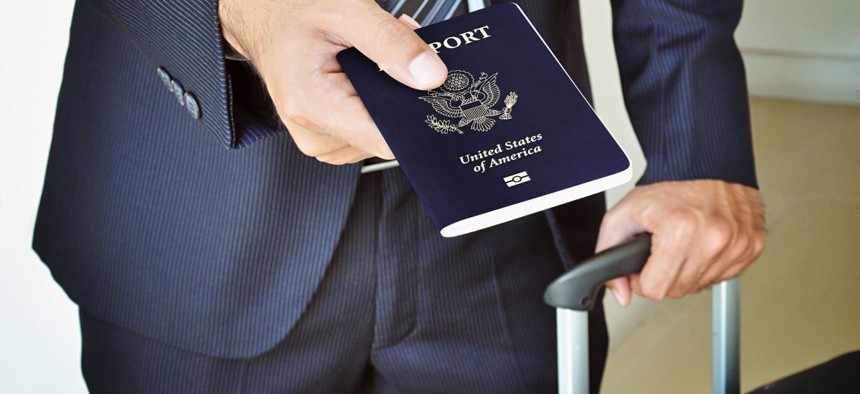A Federal ID Act Is ‘Getting REAL’ for These States

Airports my soon require alternate forms of ID from residents of states whose driver's licenses fail to comply with the federal REAL ID Act. Kritchanut / Shutterstock.com
Four states, soon to be five, lack waivers that could save their residents from being turned away by airport security starting in January.
A handful of states lacking waivers are taking issue with the gradual rollout of the anti-terrorism REAL ID Act, passed in 2005 establishing minimum security standards for driver’s licenses acceptable to federal agencies.
Airport security could stop accepting standard licenses from New York, Louisiana, Minnesota, New Hampshire, and Oklahoma no sooner than January 2016 because they fail to meet Department of Homeland Security requirements including:
Physical security features designed to prevent tampering, counterfeiting, or duplication of the document for fraudulent purposes.
and
A common machine-readable technology, with defined minimum data elements.
Already congressional delegations from Louisiana, New York and Oklahoma have petitioned DHS for an extension to become compliant because federal buildings, aside from courts, can start turning people with invalid licenses away Saturday.
Concerns the additional steps states must take to verify driver’s license seekers’ identities, as laid out in the act, violate state sovereignty led Louisiana Gov. Bobby Jindal to veto a 2014 bill implementing the new federal criteria. The bill gave residents a choice between getting a conventional or security-enhanced license.
Similar privacy concerns have held legislation up in Oklahoma.
DHS rebuffs the notion it’s creating a national identification system, and 24 states currently hold waivers granting them extensions on becoming compliant. Oklahoma’s ends Oct. 15, however.
The Sooner State passed a law in 2007 prohibiting the act’s implementation and ordering the destruction of previously government-collected biometric data not asked for by the act.
All five members of Oklahoma’s congressional delegation appealed to Secretary of Homeland Security Jeh Johnson in an Oct. 2 letter:
If the Department plans to begin enforcement at the earliest possible moment, on January 1, many states, including ours, will be wholly unable to comply, resulting in widespread difficulties for constituents.
New York and Minnesota both offer enhanced driver’s licenses (EDLs) that function like a passport to Canada, Mexico and the Caribbean, but in lieu of those, other forms of ID can be presented.
The Star Tribune’s editorial board criticized this opt-in approach, arguing those on an ideological crusade should be made to opt-out:
The burden to jump through additional hurdles in order to fly should instead fall on those worried about data privacy or federal intrusion into state matters. These were the concerns raised as objections to the law’s requirements when state lawmakers passed the 2009 ban in a bipartisan vote.
Just because states are in compliance with the act, doesn’t mean their residents are. Georgia started issuing secure licenses in 2012, but people who obtained their license prior aren’t covered.
Arizona will make EDLs available to the public on an opt-in basis beginning next April, though state Department of Transportation officials were under the impression full enforcement of the act is a ways off.
"Homeland Security has told us that full enforcement of the REAL ID Act for Arizona credentials won't take place until October 2020," spokesman Ryan Harding told the Kingman Daily Miner in an email. "That means current Arizona credentials will continue to be accepted at airport security and federal buildings. This will give people a few years to obtain one if they so choose."
Dave Nyczepir is a News Editor for Government Executive’s Route Fifty.
NEXT STORY: When Residents Clash With Homeowner Associations, Some States Step In






